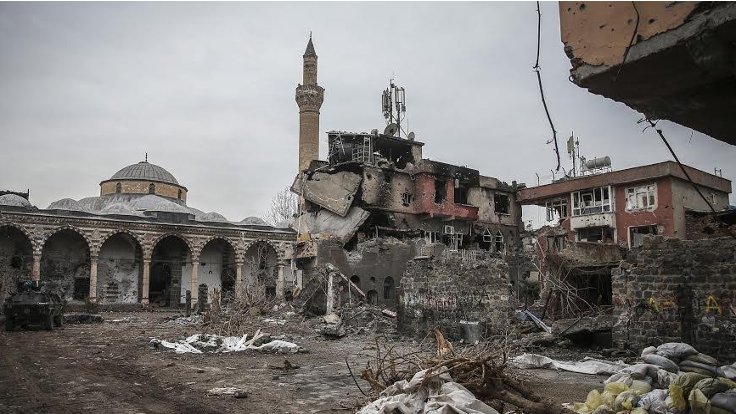Families Want to Go Back to Sur

Tigris Social Research Center, DİTAM prepared a report upon interviewing 500 families. The report shows that families’ housing, education, health rights have been violated on a large scale. Despite of this fact, they still want to go back to Sur and live there.
Tigris Social Research Center, DİTAM announced their report conducted after the conflicts of Sur, Diyarbakır. The results of the report were shared with CSOs in Diyarbakır, local authorities and the press. Representatives of DİTAM said that they had directed approximately 500 families to CSOs and public institutions according to their needs.
DİTAM’s Chairman of the Board Mehmet Kaya said that there were at least 6000 displaced families due to the conflicts and operations in Sur.
Some dramatic findings from the research:
Social-economic status: 65% out of 500 families do not have any health insurance. 52% of the men and 96% of the women don’t work. 62 families out of 500 don’t have regular income and only 100 families have an income of 2.000 Turkish liras. Half of them have incomes ranging between 1.000-2.000 Turkish liras and they get it from rent allowance.
Education: 300 out of 500 family representatives are illiterate. Only 11 of them are high-school graduates. Children of these families could not go to school during the conflicting environment. 43 of the children left school completely after conflicts.
Health: Sick and disabled people had to leave their continuing treatments and had difficulty in finding medicine due to curfews. Pregnant women during the conflict had difficulty in reaching health services and had to overcome the risk of miscarriage. Some of them miscarried. Women faced problems of early ablactating, acute stress disorder, depression, sleep disorder, anger management problem, fear of death and future, insecurity. Research found out that especially children had psychological problems due to the conflicts and these were refusing to go out, tendency to violence, lack of appetite, weakened ability to speak, hypersensitivity of sound and acute stress disorder.
Right of property: 279 of the families said that they had lived in their own houses, but after the conflicts, this number decreased to 74. Conflicts and operations left 3 of 4 families without a home. Only 34% of 279 families came to an agreement with the government about housing.
Representatives of DİTAM said that the project had consisted of two pedals and families had been directed to related institutions to supply their needs. Bar of Diyarbakır and Human Rights Foundation of Turkey being in the first place, families were directed to 16 different CSOs or public institutions.

Bizi Takip Edin